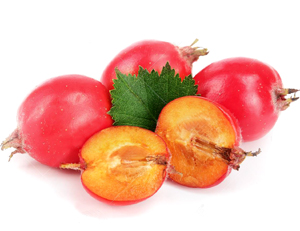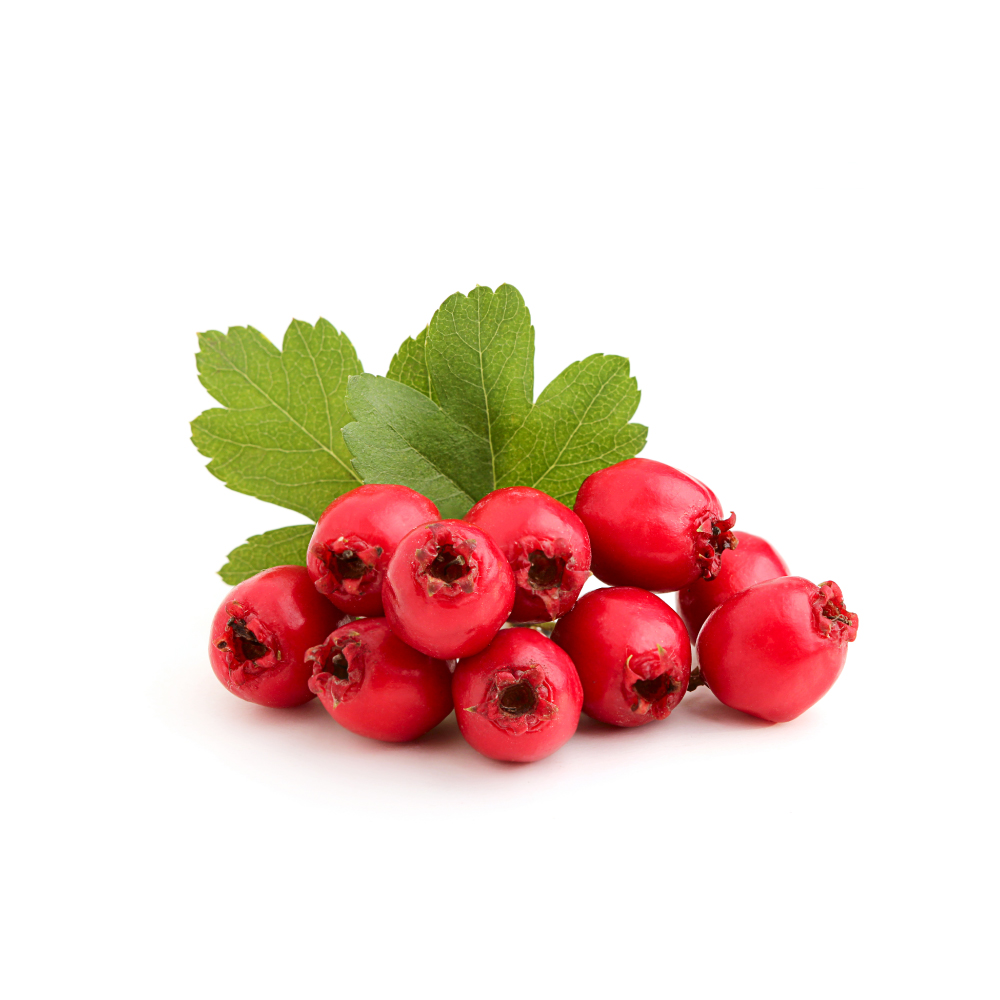No products
Hawthorn´s berries - 50g
(Fructus Crataegi oxyacantha)
Hawthorn´s berries (Fructus Crataegi oxyacantha) favorably affects the heart and arteries. It can expand coronary arteries, increase energy of heart. In patients with heart disease improves performance of the heart muscle and regulates cardiac arrhythmia...
![]()
Content |   |
Commonly calledHawthorn, Quickthorn, Thornapple, May-tree, Whitethorn or Hawberry Latin (botanical) nameCrataegus oxyacantha StorageStore in a dry place at a temperature up to 25°C |
Description of herb
Hawthorn - a deciduous shrub with thorns growing up to 2.5 cm in length - is widespread throughout Western and Central Europe, where it occurs in semi-shady places, on forest edges and along streams. The Latin name Hawthorn (Crataegus oxyacantha) is derived from the Greek krataigos = strong, for heavy and hard wood and thorns, formerly used as a weapon.
Dried flowers and fruits are used for medicinal purposes, which are harvested at full maturity (September to October) before the onset of the first autumn frosts and dried with artificial heat up to 70°C, to prepare a decoction that improves heart function, lowers blood pressure, helps with insomnia and has calming effects if taken for a long time. It is suitable to combine it with Sea buckthorn. The bred varieties of Hawthorn have no healing effects.
Healing effects
Hawthorn is a natural remedy with which only long and regular use can achieve remarkable success.
Hawthorn has a positive effect on the activity of the heart and arteries, can dilate the coronary arteries, increase the supply of heart energy, in patients with heart disease improves the performance of the heart muscle and corrects the heart arrhythmia (irregular heartbeat). These inconspicuous but valuable effects on the heart are related to its rich reserves of plant compounds called flavoids, especially oligomeric proanthocyanidin complexes (OPKs), which have strong antioxidant activity.
It dilates the arteries by abolishing the effect of the enzyme ACE enzyme (angiotensin), which in turn narrows the arteries. This effect improves blood flow through the arteries and is therefore a suitable medicine for patients with angina pectoris (relieves chest pain).
Chronically contracted arteries can lead to permanently high blood pressure (the heart must exert more pressure against inelastic arteries), so hawthorn lowers blood pressure in patients with hypertension.
It is also likely to block enzymes that weaken the heart muscle, boosting the heart's performance as a pump. Because of this property, hawthorn has particularly beneficial effects in people with mild heart disease who do not need strong drugs, such as digitalis. In addition, the antioxidant properties of hawthorn can prevent vascular damage associated with the formation of fatty plaques in the coronary arteries.
It has an antisclerotic effect, soothes cardiac neurosis, is used to treat myocardial infarction, to prevent ischemic heart disease, swelling of cardiac origin, migraines or menopausal problems. The beneficial effects of hawthorn have been reported especially with its long-term use by elderly people with "heart failure". It is also indicated in younger people whose heart is burdened by stress or illness.
As a supportive drug, hawthorn is likely to have a calming effect in people suffering from insomnia.
Hawthorn is also thought to protect collagen, a protein that is part of the connective tissue that is damaged by some diseases, especially osteoarthritis and arthritis.
Active substances
- triterpene acid
- aminopurines (adenosine, adenine, guanine)
- flavonoids
- anthocyanins
- quercetin
- pectins
- saponins
- tannins
- carotenes
- sugars
- vitamins B and C
Properties
Astringent, cardioprotective, anticonvulsant, anti-flatulence, diuretic, sedative, stimulant.
Recommended at
- Angina pectoris, heart failure, cardiac arrhythmias, myocarditis, arteriosclerosis
- It harmonizes blood pressure by regulating heart activity - long-term use can lower blood pressure
- Suitable for heart muscle weakened by age
- Strengthens blood vessels, reduces heart palpitations, helps with vascular insufficiency, blood clots (embolism, inflammation of the veins)
- Dilates coronary vessels (restoration of the heart muscle wall)
- It lowers cholesterol
- Helps against insomnia
- It supports digestion, relieves diarrhea, anorexia and is good for wateriness
Preparation and dosing
The most suitable dosage form is a tincture, which is administered 3 times a day in 20-30 drops, for preventive use it is sufficient twice a day in 15 drops - depending on the type of heart disease. However, the beneficial effects of hawthorn on your body can also manifest themselves in a few months.
Preparation: Pour 1 liter of 50% alcohol (vodka or plum brandy) over 150 g of dried hawthorn berries and let it infuse for 3 weeks in a closed bottle with daily shaking.
Hawthorn can also be prepared in the form of tea. It is used successfully in cardiac neuroses, palpitations, heart failure, insomnia, high blood pressure, hardening of the arteries and in convalescence after stroke. Consult a doctor before application. Preparation: pour 1 teaspoon of the drug over 1/4 liter of boiling water, infuse for 15 minutes. We drink one cold cup in the morning and in the evening.
Fruit tea is also used against kidney stones. Preparation: 2 tablespoons of fruit per 1/2 liter of water, cook for 10 minutes. We drink lukewarm 2 cups a day.
You can also make medicinal brandy - Preparation: Hawthorn berries are poured into vodka or rye, about 100 g of sugar is added, left to stand for 4 to 6 months and then used as medicine.
Side effects
Hawthorn products are generally considered to be one of the safest products in herbal medicine. Nausea, vomiting, sweating, fatigue and skin rashes are sometimes reported as side effects of hawthorn, but these are very rare. Hawthorn is completely safe even when used together with conventional medicines. On the contrary - if you take Hawthorn at the same time as them, their consumption may decrease.
However, before you start taking Hawthorn, talk to your doctor and be sure not to reduce the dose of the medicines you are taking or skip them yourself.
REMEMBER: Tell all your health care providers about any complementary health practices you use. Give them a full picture of what you do to manage your health. This will help ensure coordinated and safe care.

